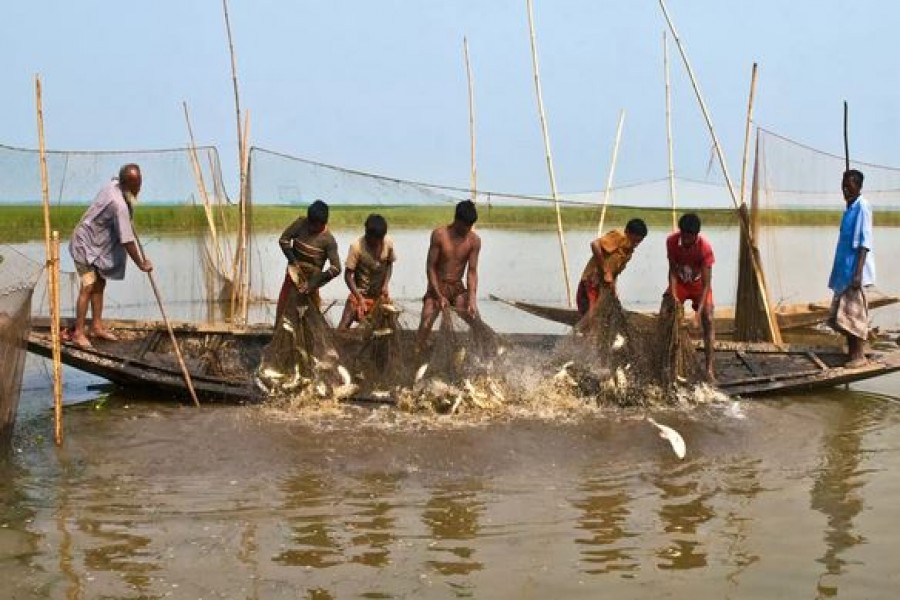
Published :
Updated :

Demand for fish from all sources and by all poverty groups will increase in the coming days due to increase in income of the people.
A research, conducted by Bangladesh Institute of Development Studies (BIDS), made the observation.
Titled as ‘Managing Fisheries for Food Security: Implications from Demand Analysis’ the research finding also showed that elasticities of demand for aquaculture and inland capture fish are higher for poor households than non-poor.
“Technological progress has driven reductions in the real price of farmed fish,” it added.
The research paper argued that effective management of all sources of fish is important for food security, but increasing supply from aquaculture and inland capture fisheries will have the largest impact on food security.
In this connection, it mentioned that fast rise of aquaculture and concurrent stagnation or decline in capture fisheries output are widely recognised global phenomena.
“But the food and nutrition security implications of these trends remain the subject of considerable uncertainty,” it added.
The paper uses the latest (2010) nationally representative household income expenditure data from Bangladesh to estimate elasticities of demand for fish by using the QUAIDS model.
It estimates elasticities of demand for fish, categorised by their origin (inland capture fisheries, marine capture fisheries, aquaculture), for poor and non-poor households in Bangladesh and analyse implications for food security and fisheries management.
Dr. Kazi Ali Toufique, Mr Sami Farook and Dr. Benjamin Belton conducted the study.
The researchers are of the view that the case of Bangladesh presented in this paper adds to knowledge on ‘how these trends may affect food security in developing countries, with associated implications for fisheries resource management strategies.’


 For all latest news, follow The Financial Express Google News channel.
For all latest news, follow The Financial Express Google News channel.